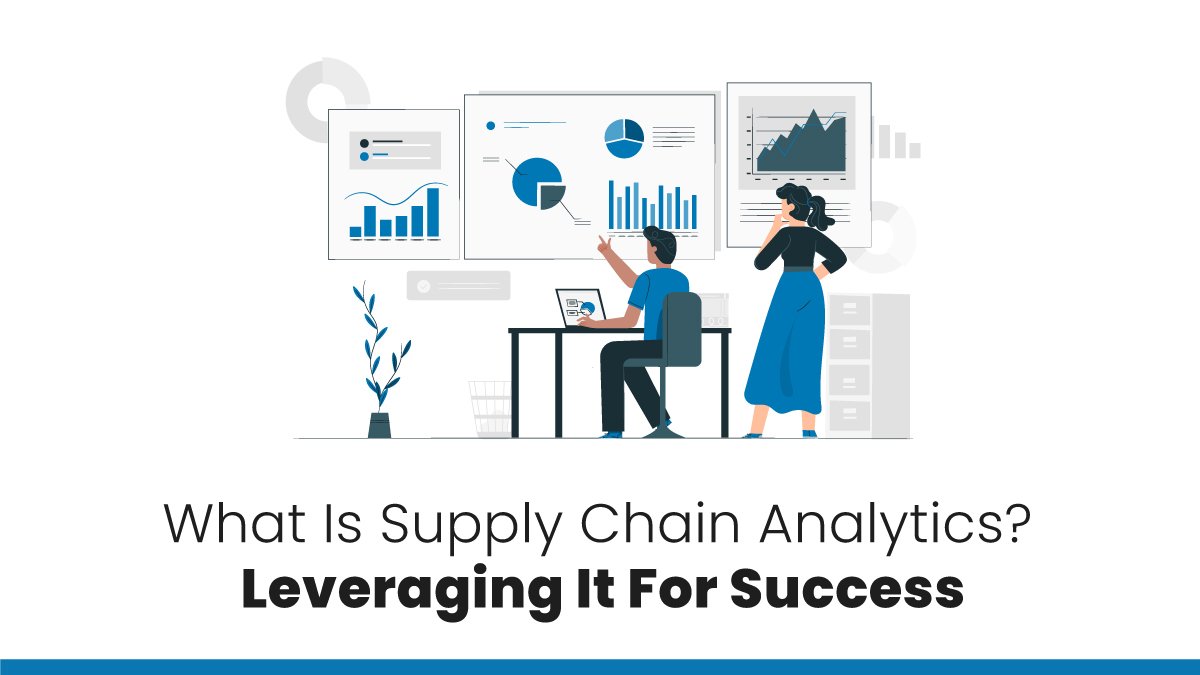The term analytics is used to represent the ability to make various data-driven decisions based on multiple factors such as performing visualization in the form of graphs, charts, and some other means, data in trusted form and summary of relevance, etc. Supply chain analytics refers to some organizations’ methods to gain insight and extract data in enormous amounts linked with the distribution of goods and procurement & processing.
It helps by making sense of all the data, such as uncovering patterns and generating insights. There are distinct types of analytics. Below are a few of them:
1. Cognitive analytics– The companies are assigned to think about a complex issue or a problem. Organizations can answer various complex questions in the form of natural language.
2. Descriptive analysis– In this type of analysis, the single source of truth is provided across the supply chain for both systems of data, internal as well as external.
3. Prescriptive analysis– In this type of analysis, the organizations can easily collaborate with some logistics associates to deliver maximum business advantage and decrease time and efforts for alleviating disruptions.
4. Predictive analysis– In this type of research, businesses can learn future scenarios and results.
Importance of supply chain analytics
The supply chain analytics process offers various advantages as it has made organizations quicker and smarter and helps them make effective decisions. Below are a few advantages listed below:
- Accuracy in planning has been increased – As with the help of supply chain analytics we can predict better business demands by analyzing costumers data.
- A better understanding of risks – This process helps identify known risks and predict some future chances with the use of some recent supply chain trends so that supply chain risk management can be achieved.
- Achieving a lean supply chain– It can be used by companies for monitoring warehouses, responses of partners, and customers ’ needs so that better-informed decisions can be taken.
- Gaining significant return on the investments– According to the recent Gartner survey, 29 per cent of the organizations have achieved higher ROI levels with analytics.
- Preparation for the future– Nowadays companies are providing advanced analytics for the process of supply chain management. The benefit of advanced analytics is that it can process both forms of data, structured and unstructured, for giving organizations alerts to make optimal decisions for logistics and supply chain management.
Operating Process of Supply Chain Analytics
In supply chain analytics, the data from different third-party sources, applications, And various emerging technologies that include IoT brings together the improvement of decision-making with the use of strategic and operational processes used for making supply chain management.
This process starts with the first step.
Some specialists known as data scientists make collaboration probably to create an imminent model that completely optimizes the result of the supply chain. In the next step, the data engineers perform the deployment of threshold success into production form to achieve scalability and performance in logistics and supply chain risk management.
In this process’s working procedure, various data engineers, data scientists, and business users are working together to present analytics and operationalize it into practice.
Significant features of effective supply chain management
If a company does better supply chain analytics, it can preserve its sustainability for the long term and its industry fame. Some of the key features which make logistics and supply chain management an effective process is:
- It is a collaborative process as improvement in collaborations has resulted in increasing supplies and has enabled multi-enterprise engagement.
- It is a cyber-aware method as it preserves systems from different cyber hacks and interruptions, which is one of the enterprise’s most widespread concerns.
- It is a comprehensive process as the insights must be complete and fast so that analytics capabilities can be scaled with data in the real-world scenario.
- It is a connected process. It enabled users to access the unstructured data present on social media and the structured format of data current in IoT. It also helps to access data sets that are traditionally available on ERP or B2B integration tools.
- It is a cognitively enabled process as nowadays, the AI platform has become a modern supply chain tower used for conduction actions and collating across its supply chain.
Future Trends in Supply Chain
There will be a continuous evolution of analytics modals, data infrastructures, and data analytics in tandem. Some of the technologies which perform a vital role in supply chain analytics are:
1. Graph analytics– The analysis comprises relations among entities that include products, operations, customers and devices, etc. It is also known as network analysis.
2. Blockchain– This technology aims to improve visibility and traceability across various layers of the supply chain. The building blocks of blockchain help companies for executing and controlling transactions.
3. Hyper automation– The technology hyper-automation is used for accelerating supply chain automation. This can be achieved by using mining analytics, which helps generate automation by identifying automation candidates.
Takeaway
Supply chain analytics can be of various types, such as cognitive analytics, descriptive analytics, prescriptive analytics and, predictive analytics. You can use any kind depending upon the nature and requirements of your business.
The working of supply chain analytics is not very complicated; the data from third-party sources will be taken, and the result will be analyzed.
Due to the advancement in technology, there have been many changes in the way analytics used to be earlier. Now blockchain technology is being used for doing supply chain analytics. Also, graphical methods are being used to make things look more presentable and easy to understand.
Dynamics 365 supply chain management helps streamline planning, production, warehouse, and transportation to get the most out of operational efficiency, product quality, and effectiveness using predictive insights from AI and the Internet of Things (IoT).
Dynatech Consultancy is proud of Microsoft Partners, too, and help improve the delivery of your products and services via predictive analytics to improve planning and recover the fulfilment, material sourcing, and logistics of your supply chain. Reach us via phone, email, or dial-in support to ask us everything.




























